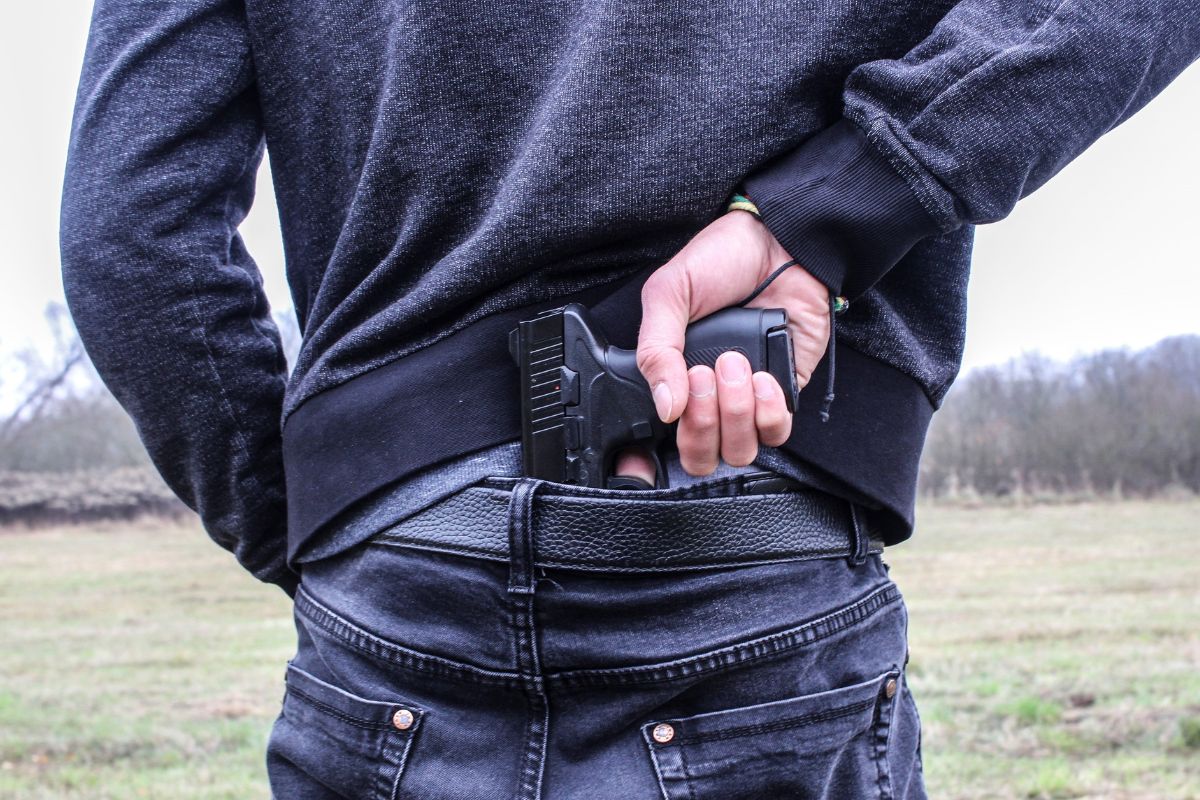Weapons Trafficking is covered under s. 99 of the Criminal Code.
Section s. 100 of the Criminal Code is another weapons trafficking charge but covers situations where the accused possesses a weapon for the purpose of trafficking. To learn more about this specific offence, see Possession for Purpose of Weapons Trafficking Laws in Canada.
Weapons Trafficking is a serious criminal offence known as a straight indictable offence, resulting in jail time upon conviction. A person can be subject to imprisonment for up to 10 years if convicted.
Examples of Weapons Trafficking
Some examples of weapons trafficking may include the following:
- Transferring a prohibited or restricted firearm to someone;
- Manufacturing a prohibited firearm;
- Manufacturing or transferring prohibited ammunition; and
- Possessing a prohibited or restricted weapon (see possession of a restricted or prohibited firearm (s. 95)).
Weapons Trafficking Defences
The defences available to a charge of weapons trafficking are entirely dependent on the facts of your case. There are strict laws surrounding weapons charges specifically related to firearms which limit the availability of a defence.
However, some defences to a charge of weapons trafficking may include:
- Your rights under the Canadian Charter of Rights and Freedoms were violated in the course of the investigation;
- The weapon you possessed is not actually restricted or prohibited; and
- You did not actually have possession of a restricted or prohibited weapon.
Punishment Weapons Trafficking
Weapons Trafficking is a serious, straight indictable criminal offence, which entails a maximum punishment as follows:
- Imprisonment for a term not exceeding 10 years.
Weapons trafficking and possession for the purpose of weapons trafficking carry a minimum punishment of imprisonment for a term of one year if the weapon is not a firearm. However, if the weapon is a firearm, the minimum sentence is 3 years. Punishments will also frequently involve restitution and subsequent probation.
Weapons trafficking convictions can also entail severe consequences for current and future employment opportunities and immigration status.
Overview of the Offence
Top Three Weapons Trafficking Defences
The weapon you possessed was not actually restricted or prohibited
If the weapon you possessed does not fall under the restricted or prohibited weapons under section 84(1) of the Criminal Code, then the Crown will not be able to prove the actus reus of possession of weapons for the purpose of trafficking.
Identity
Depending on the circumstances of your case, a possible defence to criminal negligence causing death may be to raise an identity defence. For example, you may have been incorrectly identified as the perpetrator if the conduct in question was captured on a poor-quality video or wiretap. In this case, for this defence to be raised successfully, you will have to prove that you were not the person who was found to be trafficking weapons. This can be done by corroborating evidence, such as an alibi, to remove yourself from the offence.
Any applicable Charter defences
The Charter sets out your rights and freedoms before and after your arrest. If the police fail to abide by these rights deliberately or inadvertently, it could aid in your defence. If any of your Charter rights have been violated before or after your arrest, you may be able to have some or all of the evidence that the Crown is relying on to secure a conviction excluded under s. 24(2) of the Charter.
Punishments
The Criminal Code provides for a possible maximum term of imprisonment of 10 years for those convicted of a weapons trafficking charge.
Consequently, persons found guilty of weapons trafficking are not eligible for sentencing entailing a discharge, suspended sentence, stand-alone fine, or conditional sentence order. Weapons trafficking charges carry mandatory minimum incarceration sentences and will always result in a person charged being incarcerated.
Specifically, in criminal negligence causing death cases, courts have also paid attention to the following non-exhaustive factors for sentencing:
- Previous weapons charges;
- The type of weapon or firearm possessed);
- Past criminal record;
- Age of the offender;
- The reason the offender possessed the weapon or firearm; and
- How the weapon or firearm was stored.








